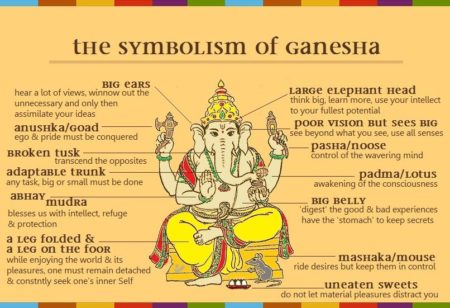In the discipline of SEO (Search Engine Optimization) there are many many tricks and techniques to optimize the positioning of a web blog.
So far, this issue of “SEO for bloggers” series I have focused on these techniques and tricks, especially in the most basic and most effective.
Today I want to talk about the major mistakes that I made ??at the time in relation to SEO and that what I have observed, are very representative of the mistakes that many people comment.
1. We must Rise as Divers: Slowly and Steady
If there is a concept you have to understand when you think about positioning your website or your blog is the long tail (“long tail”) of SEO.
This concept means that when they are more generic search (fewer words), more often sought, but also much higher competitive.
It is very typical for beginners to get into niche bloggers with excessive competition (niches where there are many web sites well positioned authority), a very bad idea for a site that does not have authority over the Internet.
If you create a blog and try to position yourself so generic keywords such as “trendy” or “summer fashion” I’ve been clear niche because the competition is so brutal, first, you have nothing to do. You’re not positioned on the first page of the results of search that is where Worth area (clicks on the other are negligible); no one will click on your links and therefore receive no links and no progress through authority in your niche.
This can be seen very well with the free tool Keyword Tool for AdWords from Google. Will tell you how many monthly searches for any combination of keywords are and what level of competition they have (web sites that want to position these words).
Reasonable position to start a blog niches move in low competition and a range between a few hundred and a few thousand searches a month. For a blog that begins, as appropriate searches are usually three or four keywords.
That is to say, in this case less is more. The more specific the keywords used, fewer searches are done, but (in fact, many more …) chances you have to position yourself on the first page of Google results (which is all that really matters).
This advantage is also known as the “long tail” (long tail in English) and the idea is to start position in niche low competition which will allow you, as you go harder positioning (acquire more authority), have more strength to compete in less specialized niche related.
That is, if you start competing for keywords such as “get followers Twitter fast “,” get followers Twitter easier “or” get followers Twitter quality “will gradually get stronger to compete in a niche with increased competition as” very Twitter followers “and so on.
2. Writes the First Title and then the Rest
This point is closely related to the above.
Many people make, in my opinion, the mistake of writing the post first and then search for a title and also spend 30 seconds when the title for the post have been shot 4 hours or more. All this when it is known that exactly the title will be the key factor for you to read or not?
The logic is that you do the opposite that you are clear about what you want to write and within this, what specific issues you want to play. I will post better because better will keep the focus on the issues that you have defined from the title, which the readers appreciate.
Incidentally, the fact of making the exercise of identifying lines of content with the right keywords will make it much easier and more natural to incorporate them in drafting the post to which you will automatically work better SEO.
3. Do not think Like you; Learn to think Like your Readers
It is very typical for bloggers beginners at first not are able to get into the skin of his readers, to think like them. One of the clearest examples is how to project the way to search for your potential readers.
I have already been more than once the same story: the illusion that enters a blogger brand new when first seen in the results of Google.
Are you all happy about saying “Good, because I found in Google!” You ask “What quest?” And they respond with something like “The Malasana restaurants I like to go out to dinner”…
I always find it bits muss this illusion so well known that when you start with this, but it should be clear these issues soon. So always ask “But I soul jar, how many people do you think will do exactly that search? “and” Y in the network, how many posts do you think there are with exactly that title? “
When I explain that I would be good if Google cannot locate the world’s only post with exactly that title and that any user will find this title in particular, but something like “dining out in Malasana” are beginning to change the face…
This is a typical error also occurs in many other areas and we confuse our desired reality.
Something similar happens with people riding a shop something they are passionate about doing a market survey to ascertain whether there is demand for your offer really convinced that as they would like that to be successful or yes, until the harsh reality makes them fall on a Limb, most of the time, accompanied by real economic and personal drama.
This is normal because it is human, but soon learns to overcome the innate tendency we have to think this way. Do not fall into this error; you will slow down the progression of a lot your blog, maybe even to the point that never gets off the ground.
Once you clear the niche or niches in the position you want, studies how people searching in that niche. A very affordable and practical way is to simply talk to people who match the profile that you direct the reader and ask openly why you would search to find specific information (that you offer on your blog).
It is also very interesting to experiment with tools like the free keyword tool for Google Adwords since there can “pivot” around keywords. I mean, if you put a keyword like “Fashion”, you will see which combinations of words containing this people in your searches ago. A great source of ideas.
Something similar happens with Google Instant: if you type “make” more space in Google, the search engine will suggest you the most common searches done with the word “fashion”. An excellent track to detect interesting keywords for your topic.
And another thing: do not be fooled by the “aesthetics” of language. That is, “trendy affordable children” sounds better than “cheap fashion children” but the second search which is far more often, therefore, it is this interests you, it sounds more “seedy”.
4. Do not Load your SEO with Duplicate Content
One of the measures that Google has implemented in recent years to detect “fraudulent” and low quality sites is the detection of duplicate content . Therefore, eye copy content from other sites. Apart from being unethical, seen how Google works now, generally does not make much sense because mortgages and positioning that content (and your blog) for life.
The really bad thing about this is that Google makes mistakes sometimes; as in this case, a well-known site where you copied us a post (of course, without asking) and those who have suffered the penalty have been us.
Test search, for example, “get followers Twitter” and see where the copy and look appears to see if you find in the original post (you’ll find other posts of this blog, but not the original post copy, at least not in the first 5 pages of results …).
If you do not pass this, a recommended countermeasure is to use Google+ to share your files immediately after its publication. So not only you will spread your content via this channel, but also you make sure that Google’s indexing sooner (in the above example did not and you have seen the result …).
One last tip: if you want to check which sites you copied the tool comes in handy Copyscape. In this tool you can enter a URL and it will locate sites that contain whole or partial of the contents of this URL copies.
5. The Traffic that Really matters is the Recurring
And finally, one last tip: do not get obsessed with traffic and therefore the effort you put into SEO. Google is getting smarter making increasingly better SEO are drawn naturally good content and a good dose of common sense.
But also, normally, what interests the blogger is not gross traffic quality traffic but that traffic is recurring. You’ve ever read the famous saying that “what you want is traffic, but readers.” Well that’s what you mean.
There are exceptions (like blogs / websites very oriented revenue advertising) but usually recurrent traffic is virtually the only interests you because it is composed of people who really value your content and show some confidence in you.
It is those people that you really care because read you again and again, regardless of the inventions of Google and it is those readers who may even become customers of yours if you ask a professional activity related to blog topics because it’s people that you’ve established some trust relationship that is most important for any type of sale basis.
Traffic that comes to you from Google, usually, most people are ephemeral readers. They see you once, if you are lucky, do not bounce and have a look at some post, but do not re-read anymore because your niche is not in their core interests. To give you an idea, in the case of this blog, for example, the recurring traffic remains stable at around 25% or so.
Moreover, it may be the case thanks to an excellent SEO work, the gross traffic grows every month, but go slowly decreasing recurrent traffic. If you stay on the surface you may think you’re really good when going very badly. May be you’ve spent too much time in SEO and yet, increasingly neglected content.




